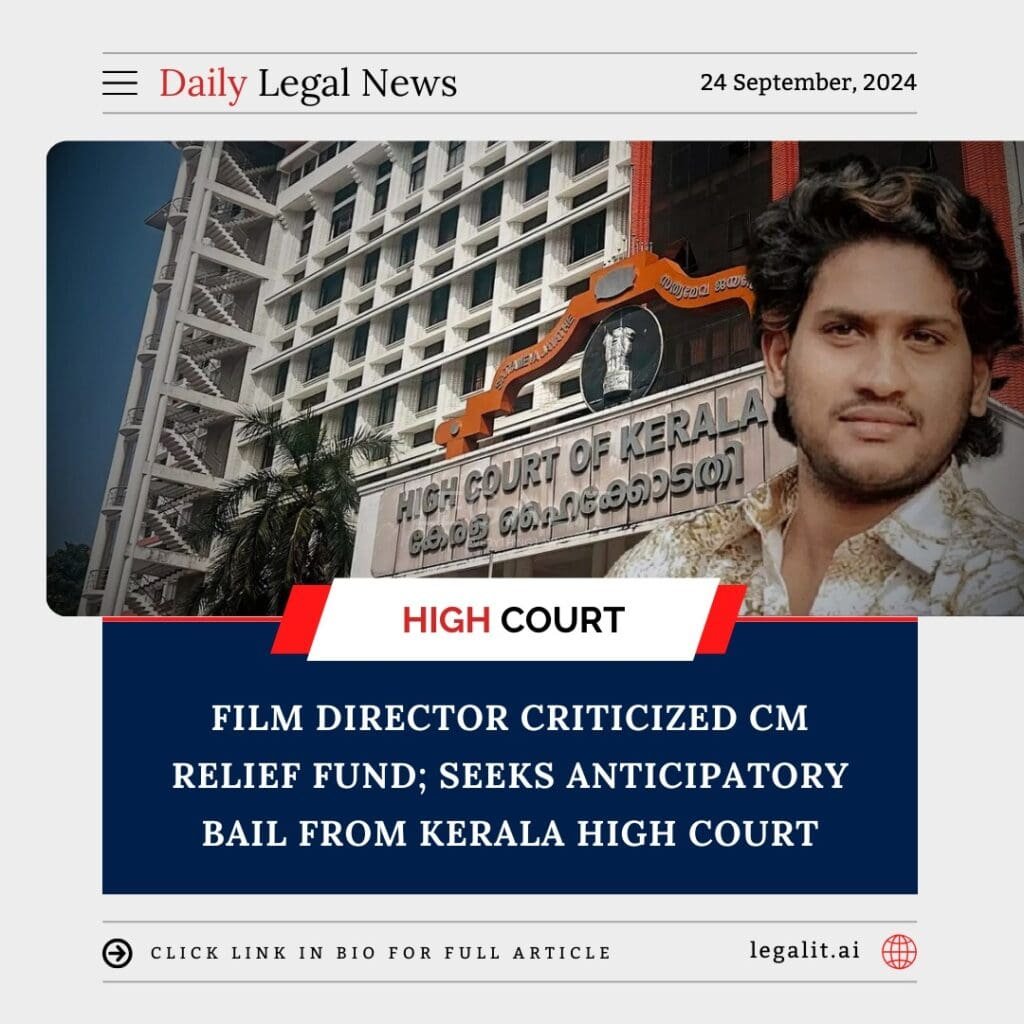
A film director who has been booked for allegedly criticizing the Chief Minister’s Relief Fund has approached the Kerala High Court seeking anticipatory bail. The director, whose comments sparked controversy, now faces charges under sections of the Indian Penal Code (IPC) and other laws, leading to fears of arrest.
1. Background of the Case
The director had made public comments criticizing the allocation and distribution of funds from the Chief Minister’s Relief Fund, accusing the administration of mismanagement and lack of transparency. The remarks, which were widely shared on social media, drew the ire of certain political factions, who accused the filmmaker of defaming the state government and spreading misinformation.
In response, the police registered a case against the director, invoking charges including defamation and intent to incite public unrest. The case has generated significant attention, with supporters of the director defending the right to free speech, while critics argue that the comments were irresponsible and inflammatory.
2. Seeking Anticipatory Bail
Fearing arrest, the director has moved the Kerala High Court to secure anticipatory bail, arguing that the charges are politically motivated and an attempt to silence dissent. The petition submitted to the court states that the director’s comments were made in good faith, based on concerns about public welfare, and were not intended to defame or incite unrest.
The petition also highlights the importance of protecting the right to freedom of expression, emphasizing that criticism of government policies should not lead to criminal charges. The director’s legal team argues that the right to voice concerns about public funds is a part of the democratic process, and prosecuting someone for expressing such views sets a dangerous precedent.
3. The Charges and Legal Implications
The charges against the director include defamation under Section 499 of the IPC, along with other provisions related to public order. If convicted, the director could face both financial penalties and imprisonment. The case raises important questions about the limits of free speech, particularly when it involves criticizing government bodies.
Critics of the charges argue that the freedom of speech and expression, guaranteed by Article 19(1)(a) of the Indian Constitution, allows citizens to openly critique government actions, including the use of public funds. However, defamation laws in India provide exceptions where speech can be curtailed if it is found to harm an individual’s reputation or incite public unrest.
4. Public and Political Reactions
The case has ignited a larger debate about the limits of criticism in a democracy. Supporters of the director have rallied behind the principle of free speech, stating that citizens should be allowed to question government actions without fear of prosecution. They argue that the director’s comments were based on legitimate concerns about public funds and should be protected as part of public discourse.
On the other hand, those defending the government’s decision to file the case argue that the director’s statements were irresponsible and could mislead the public, potentially damaging the reputation of the Chief Minister’s Relief Fund, which is often used to assist people in distress.
5. Awaiting the High Court’s Decision
The Kerala High Court is now tasked with deciding whether to grant anticipatory bail to the director. The court’s decision could have significant implications for the future of free speech in India, especially when it comes to criticizing government policies. The case also brings into focus the need for a careful balance between free expression and protecting public order.
As the case proceeds, all eyes are on the Kerala High Court as it weighs the right to free speech against the potential consequences of criticizing government programs. The decision will likely shape the ongoing discourse around freedom of expression and the boundaries of political criticism in India.